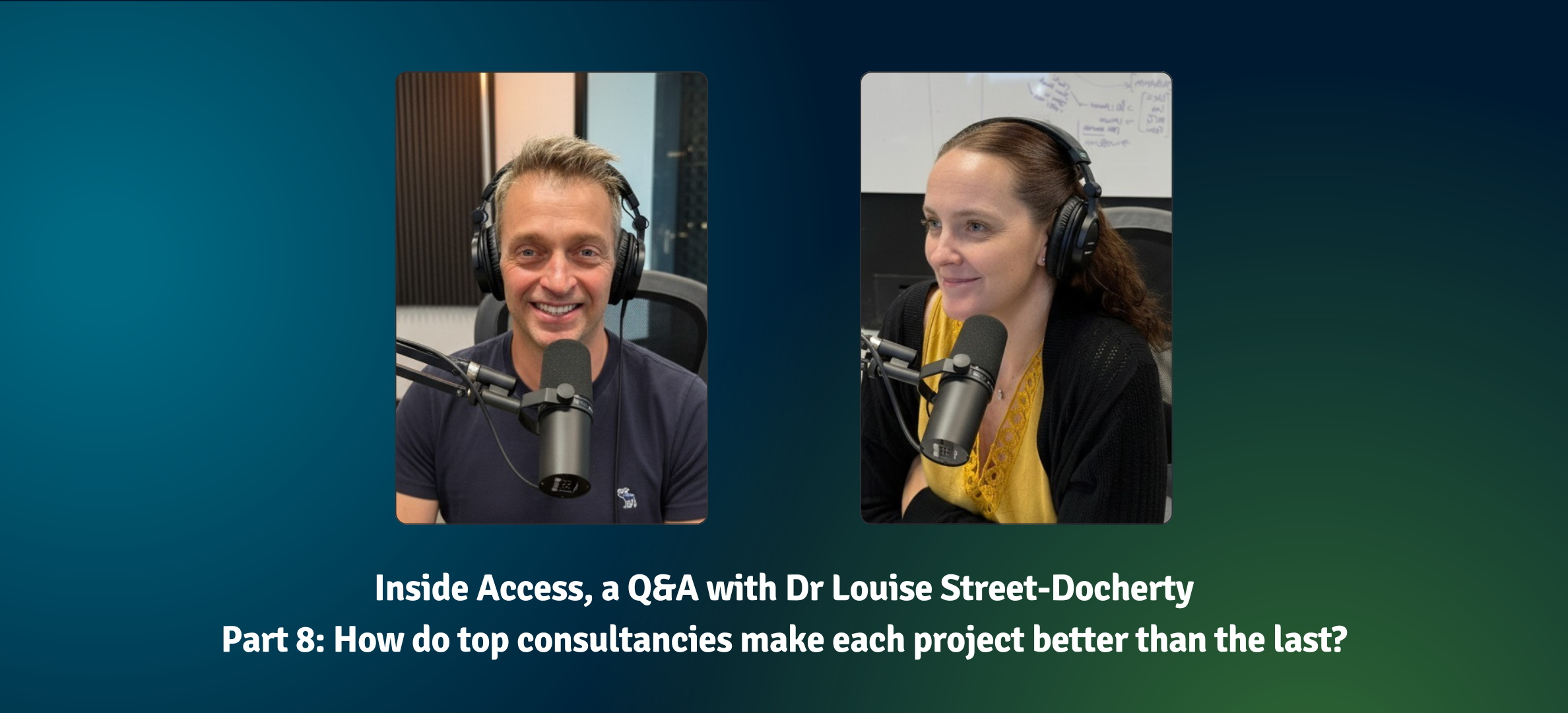
Every consultancy talks about being a learning organization. But when the pressure is on, project timelines are tight, and senior people move fast, hard-won knowledge often disappears. This final mile, making sure what you learn actually improves the next project, is where most firms fall short. And yet, it is one of the greatest opportunities to scale both quality and confidence across teams.
At Knowledgeable, we see every client engagement as a chance to build a long-term knowledge asset. That requires more than just storing documents. It means capturing insight in a way that is structured, searchable, and shareable, so teams can build on each other’s thinking. For this conversation, I asked Louise Street-Docherty, our VP of Market Access, to talk about how leading consultancies retain knowledge that compounds over time and why this matters more than ever for the future of the field.
What types of knowledge are hardest to capture between projects?
In my experience, the hardest knowledge to retain is the kind that lives in people’s heads. It’s the rationale behind decisions, the lessons learned from unexpected stakeholder reactions, or the subtle signals you pick up when triangulating payer sentiment. These are the things you say out loud in team meetings but rarely write down. Because they are not always part of the final deliverable, they tend to vanish once the project ends.
This kind of knowledge is often the most valuable. It reflects the consultant's judgment, not just the outputs. And if you do not capture it, your team risks losing the nuance that made the difference.
How do great teams avoid reinventing the wheel every time?
Strong teams have mechanisms in place to surface and reuse thinking. This includes templates for project setups, pre-built search strategies, and aligned processes for triangulating data. But more importantly, they have a shared language for how they approach each problem. That consistency lets them start faster and go deeper.
We often underestimate how much time is wasted looking for previous work or starting from a blank page. When foundational thinking is accessible and trusted, teams can spend more time on the unique aspects of a project, rather than redoing what has already been done.
Why does codifying tacit knowledge matter for scaling quality?
Codifying tacit knowledge allows teams to make good judgment repeatable. You can spot patterns earlier, apply what has worked elsewhere, and avoid mistakes others have already learned from. It also helps onboard new team members faster, because they are not relying solely on informal conversations to understand how the work gets done.
When done well, this becomes a multiplier. One team’s insight becomes a foundation for others. It raises the baseline for quality and creates space to push the boundaries further.
What are the risks of not having a shared institutional memory?
Without a shared memory, even experienced teams become inconsistent. You get uneven quality across deliverables, delays while people hunt for prior materials, and missed opportunities to apply past insights. It also makes the organization overly dependent on individuals. When key people leave, they take that context with them.
At a strategic level, the cost is even higher. Without continuity, it becomes hard to track long-term shifts in the market, compare approaches across therapy areas, or build a consulting perspective that evolves over time. You are stuck solving each problem as if it is brand new.
How does Knowledgeable turn project outputs into a knowledge asset that compounds over time and accelerates future work?
Knowledgeable has been designed to act as the long-term memory for market access teams. It does this by embedding structured knowledge capture directly into the workflow. Every search string, data cut, stakeholder list, and narrative is stored with context, so future users can understand not just what was done, but why.
Because our ontology reflects how consultants actually work, the system surfaces relevant past work automatically. That includes both approved deliverables and the underlying thinking. This makes it easy to trace ideas, reuse frameworks, and accelerate delivery without compromising depth or originality.
The result is a library of knowledge that grows with every project. Not a dumping ground, but a curated asset base that helps every team work smarter and deliver better outcomes for clients.
Closing thoughts
Louise's answers highlight something we rarely say out loud in consulting: real quality is cumulative. You do not just get better by hiring smart people. You get better by making sure their thinking lives on and is available to others. If each project is treated like a one-off, you are leaving a huge amount of value on the table.
That is why we built Knowledgeable as more than just a research or delivery tool. It is a system for retaining what makes your team great, so every new piece of work builds on the last. That way, clients benefit from the full power of your collective experience, not just whoever happens to be on the project on a certain day.

